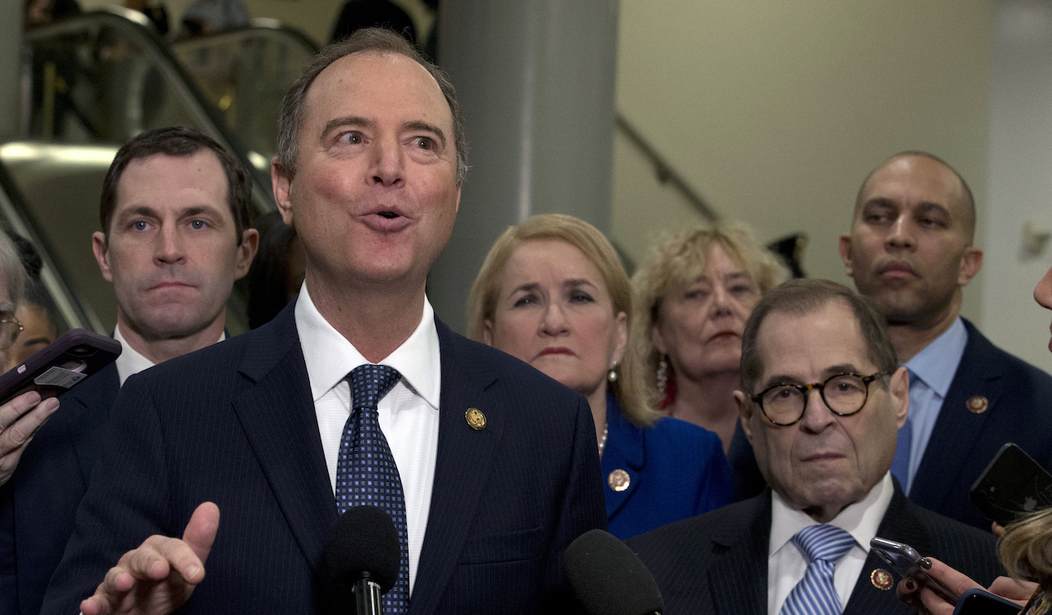The 2013 Edward Snowden leaks revealed for the first time the frightening extent to which post-9/11 national security powers had been expanded – and abused – in the decade thereafter. But it was not until the FBI’s partisan crusade against the Trump electoral victory, did we have a clear and vivid picture of the degree to which those powers could be abused in the hands of bitter and unaccountable intelligence officials. American citizens would finally come to realize that if it could happen to the President of the United States, it could happen to anyone.
Ironically, it is because of this hubris deep inside America’s intelligence community that we are now closer than ever to reforming at least some of the abuses of the USA PATRIOT Act. With certain provisions of the Foreign Intelligence Surveillance Act (FISA) set to expire on Sunday – most notably the much-abused Section 215 -- hope for restoration of at least some of America’s civil liberties is on the horizon (but not guaranteed).
Sens. Rand Paul (R-KY) and Mike Lee (R-UT) once again are leading the fight to bring these expansive government surveillance powers back into line with the Fourth Amendment. It is unclear what will transpire over the next few days as party leaders seek to cobble together a majority of votes on one of the three possible outcomes; but also, to ensure the basic intelligence law remains on the books.
The first is full reauthorization. And, if Rep. Adam Schiff and other surveillance hawks in Congress on both sides of the aisle have their way -- with the full support of the Intelligence Community -- it will be without any proposed amendments that weaken the powers that were deployed against the Trump campaign and Administration. Already Schiff has attempted to bully-away attempts to reform Section 215, including those by fellow Democrat Rep. Zoe Lofgren.
The second possibility is the other side of the coin; true meaningful reform to FISA that dramatically curtails domestic – not foreign -- spying powers. FreedomWorks has a great rundown of what such reforms might look like, including once and for all eliminating the terrible Call Detail Records (CDR) program that has been abused repeatedly. FreedomWorks’ proposal also would require a warrant for US citizens targeted by FISA orders and would take away the FBI’s FISA reporting exemptions.
Recommended
FreedomWorks admits Lofgren’s reform bill (the “Safeguarding Americans' Private Records Act of 2020”) and its Senate companion are not a comprehensive fix to all of Section 215’s abuses. Nonetheless, the well-respected organization says it still is “a major improvement and our 4th Amendment would be in much better shape for it.” However, as is the case for full authorization, the votes are likely not there for such sweeping reforms given the Sunday deadline.
The Senate, of course, could have been hard at work on this important matter months ago, knowing this deadline loomed. But putting it off until the eleventh hour – a well-known legislative maneuver – makes it easier to avoid the hard work of substantive reform and to simply kick the can down the street once again.
The final and most likely option is a compromise between full reauthorization and sweeping FISA reforms; in which Section 215 is temporarily reauthorized before the deadline but with some worthwhile reform concessions. For example, there is significant support for striking CDR completely from the books, particularly since the NSA has already shuttered the program responsible for collecting this data. This should make for an easy concession from Rep. Schiff and Judiciary Chairman Jerry Nadler. In exchange, pro-reformers might consent to a temporary reauthorization of FISA for two to six weeks while negotiations between the two sides continue on the more complicated provisions.
At this late stage, just a few days before these oft-abused surveillance powers are set to expire, and with the coronavirus pushing virtually every other major legislative issue from the headlines, the outcome here is muddled to say the least – a situation surveillance advocates within the Congress and the Administration will use to their advantage.
Another real opportunity to repeal domestic spying powers that were enacted under the guise of “foreign intelligence surveillance” and that never should have been granted in the first place, may not come for another decade – if ever. If we let slip by this opportunity, vital Fourth Amendment guarantees against abusive government surveillance may be forever lost.

























Join the conversation as a VIP Member